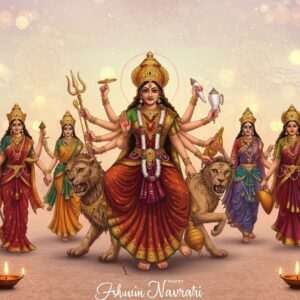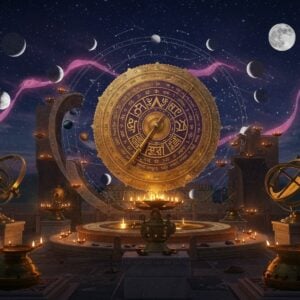
Deep within the lush, rolling hills of Northeast India lies a cultural treasure that forms a vital part of our country’s diverse identity. The Karbi people, primarily residing in the beautiful district of Karbi Anglong, hold onto a vibrant heritage that speaks of ancient wisdom and community spirit. For those of us who value our roots, understanding the rich tapestry of Karbi traditions is not just about observing a tribe; it is about honoring the resilience of India’s indigenous history. This guide invites you to step into the world of the Karbis, highlighting their pride, their authentic experiences, and how they are keeping their flame alive in 2026.
Unveiling the Roots of Karbi Heritage
The history of the Karbi community is a fascinating narrative that traces back thousands of years, with some scholars pointing to migrations from Central Asia that shaped their unique identity. Unlike written records that can fade, the Karbis have kept their history alive through powerful oral traditions. Grandparents sit with grandchildren, passing down folktales and historical narratives, ensuring that the wisdom of the ancestors remains fresh in the minds of the youth. While neighboring tribes have influenced their customs over the centuries, the Karbis maintain distinct traits that set them apart. Terms like ‘Kur’ (clan) and ‘Rongker’ (a village welfare festival) are not just words; they are the pillars of their social and spiritual life, reflecting a deep connection to the land and each other.
Vibrant Customs and Festivals in 2026
The Karbi community takes immense pride in their festivals, which are vivid celebrations of life, gratitude, and spirituality. In 2026, these events have taken center stage, showcasing how the community balances ancient practices with modern outreach.
The Grandeur of Karbi Honghari Armu Chingrum Ameipi 2026
Held in the scenic locale of Chengbong in West Karbi Anglong, this event was a magnificent showcase of the tribe’s spiritual and artistic heritage. It wasn’t just a gathering; it was a revival of a 5,000-year-old civilizational legacy. The event featured mesmerizing traditional dances and sacred rituals that left spectators in awe of the community’s depth. More importantly, it served as a guiding light for the younger generation, inspiring them to embrace their folk traditions and religious beliefs with pride rather than letting them fade into obscurity.
Joyous Hacha Kekan Celebrations
Reflecting the tribe’s deep agrarian roots, Hacha Kekan is a heartwarming post-harvest festival that brings the whole village together. It marks the successful completion of Sok Keroi, the ceremonial process of bringing harvested paddy from the fields into the sanctity of the home. The energy during this time is infectious, with village youth and men performing the rhythmic Hacha Kekan dance. It is a time for bonding, where traditional food and rice brew are served to the elders as a mark of respect, symbolizing unity and the blessing of a good harvest.
The Historic Karbi Youth Festival (KYF)
The Karbi Youth Festival is a testament to the resilience of ethnic culture in India. While the 51st edition was celebrated with great fervor in 2025, the community is gearing up for a historic milestone with the 52nd KYF scheduled to be held in New Delhi in 2026. Organized by the Karbi Cultural Society (KCS), this is considered the oldest ethnic festival in India. It is a spectacular convergence of singing, dancing, traditional games, and exhibitions. By bringing this festival to the capital, the community aims to showcase their traditional attire and folk songs to a national audience, bridging the gap between the Northeast and the rest of India.
Distinctive Traditions and Spiritual Beliefs
What makes the Karbi tribe truly unique is their blend of social structure and spirituality. A defining feature is their matrilineal inheritance system, which empowers women and highlights their crucial role in the family. Their connection to nature is evident in their agricultural practices, such as ‘Jhum cultivation’, and their architectural style, featuring stilt houses crafted from bamboo and thatch that breathe in harmony with the forest. Spiritually, they practice animism and ancestral worship, believing that the blessings of the forefathers guide their daily lives. Healing is also a traditional art here, with herbal medicine being a respected practice passed down through generations.
Bring the Essence of Tradition Home with Poojn
At Poojn.in, we understand that culture is not just about reading; it is about experiencing and practicing. We are India’s premier destination for cultural goods, offering you a bridge to these rich traditions. Our store provides authentic products that allow you to perform rituals with the sanctity and respect they deserve.
- Authentic Ritual Kits: We offer carefully curated ritual kits that contain all the necessary items for specific ceremonies, ensuring you never miss a vital element of your puja, saving you time and effort in sourcing individual items.
- Traditional Ceremonial Accessories: Discover our range of ceremonial accessories, including traditional jewelry and headgear, which are perfect for completing your cultural ensemble and helping you feel deeply connected to the occasion.
- Ethnic Attire Collection: Explore our selection of traditional attire that reflects the beauty of Indian craftsmanship, essential for participating in cultural events with confidence and grace.
Experience the comfort of shopping for your spiritual needs from your own home. Visit poojn.in today to explore our collection. For personalized assistance, you can reach out to us at 03369029784 or chat with us on WhatsApp at 9476142738.
Insights into Karbi Life: Common Questions Answered
Understanding a culture as deep as the Karbi’s often brings up many questions. Here, we address some of the most common curiosities to help you gain a better appreciation of their way of life.
Where do the Karbi people come from?
The Karbi people trace their origins to the lush landscapes of Assam in Northeast India. They are recognized as one of the earliest ethnic groups to settle in this region, carrying a history that is woven into the very soil of the land.
Why is the region of Karbi Anglong so special?
Karbi Anglong is more than just a district; it is the spiritual and cultural heartland of the Karbi people. It is the sanctuary where their customs, language, and traditions are actively preserved, celebrated, and protected from the eroding winds of modernization.
How are festivals celebrated within the community?
Celebrations here are a sensory delight, filled with vibrant dances, rhythmic drumming, and colorful traditional attire. Festivals like Rongker and the 2026 Honghari event focus heavily on community bonding, where every member, from the youngest child to the oldest elder, participates in the collective joy.
What is the best way to experience this culture in 2026?
The most authentic way to experience this heritage is by engaging with the events directly. Visiting during the Hacha Kekan or attending the upcoming Karbi Youth Festival in New Delhi offers a firsthand glimpse into their world, allowing you to witness their customs and warm hospitality up close.
Why is preserving this heritage crucial?
Preserving Karbi heritage is essential to maintaining the rich cultural mosaic of India. It ensures that the unique identity, history, and values of the Karbi people are respected and that future generations have a strong foundation to build upon.
Embracing the Future While Honoring the Past
As we move through 2026, the Karbi community stands as a shining example of how to honor ancestors while embracing the future. The Karbi Cultural Society (KCS) and events like the Honghari Sabha act as pillars, ensuring that the younger generation does not lose sight of who they are. By participating in these festivals, the youth are not just having fun; they are learning the profound importance of their lineage. This dedication ensures that the rich tapestry of Karbi traditions will continue to flourish, weaving a legacy that inspires pride and unity for generations to come.


